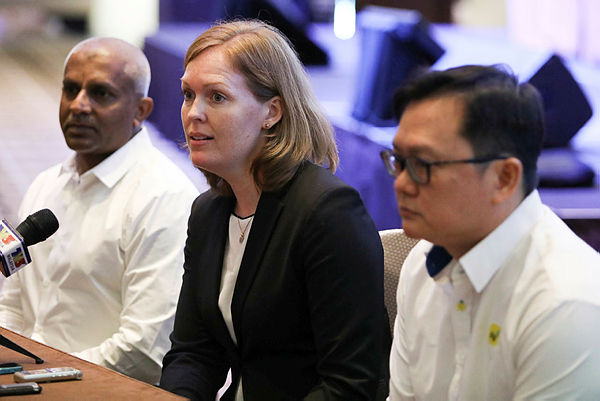KUALA LUMPUR: Digi.Com Bhd is banking on prepaid-postpaid convergence and better average revenue per user (arpu) to drive its revenue for the financial year ending Dec 31, 2019 (FY19).
“Currently, postpaid accounts for 25% of our base. We definitely see that growing. Our strategy is to grow our postpaid and also to drive the prepaid to postpaid conversion,” its CFO Inger G. Folkeson told reporters at its AGM today.
She said it will drive arpu for existing customers by providing more value and more uplifting plans to customers, as well as easy entry device bundle plans and the Digi PhoneFreedom 365 plan which will also drive earnings before interest, tax, depreciation and amortisation (ebitda) going forward.
“We are quite confident this will have an impact on our revenue. When it comes to low single-digit ebitda growth, this is also driven by efficiency in our sales and distribution channels, digitalisation and moving more into digital interfaces with our customers for instance MyDigi app as well as kiosks for top-ups and et cetera,” she added.
In terms of operational efficiency to reduce cost, she said it is continuously working on improving its processes and revamping its technology operating model, and its sales and marketing processes.
She said the programme, which is implemented across all its different units and processes, is aimed at freeing up capacity to drive growth.
Earlier this year, the group announced its FY19 guidance of low single-digit growth in ebitda, service revenue to be around 2018 level and capital expenditure (capex) to sales ratio of 11-12%. The capex will be used for network enhancements and digitisation of its network and services.
Last year, the group achieved ebitda of RM2.96 billion and service revenue of RM5.92 billion while capex spent was RM685 million or 11.6% of sales ratio. Its blended arpu currently stands at RM41.
In the first quarter ended March 31, 2019, the group achieved ebitda of RM723 million and service revenue of RM1.44 billion, and invested RM168 million capex for IT and network capacity upgrades, fibre network expansion and network function virtualisation.
On Digi’s home fibre pilot which is ongoing in Malacca and the Klang Valley, Folkeson said it is conducting trials to see the possibility of entering the market and will work on a strategy after an assessment based on the pilots.
Chief technology officer Kesavan Sivabalan said it is looking at various options including leveraging on its own fibre infrastructure and working with several partners. Digi had 8,400km of fibre network as of end-2018.















